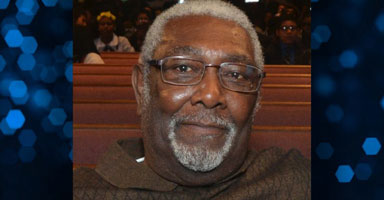1968 Memphis Sanitation worker Baxter Leach mourned as ‘an honorable man’
By Dr. Sybil C. Mitchell, Special to The New Tri-State Defender
Baxter Richard Leach used his voice to cry out for the respect and dignity of sanitation workers oppressed by unsanitary and unsafe working conditions and racist attitudes. It all came to a head on Feb. 1, 1968 when two friends and colleagues were crushed to death in a malfunctioning compactor on their truck.
Mr. Leach and fellow sanitation workers rose up and in unison shouted to the world, “I AM A MAN.” They marched against the powers that be, earning a hard-won victory in a fight that brought Dr. Martin Luther King Jr. to Memphis, where he was assassinated on April 4, 1968.
On Tuesday (Aug. 27), Mr. Leach died after what longtime friend Calvin Taylor said was a bout with cancer. He was 79.
Funeral arrangements were incomplete at The New Tri-State Defender’s press time Wednesday night.
“Mr. Leach was very devoted to his local and to AFSCME (American Federation of State, County and Municipal Employees), to his community, and to his family,” said Gail Tyree, director of Local 1733.
“We are going to miss him tremendously. He was an honorable man, a good man who shared his story with young people every opportunity he got. Mr. Leach knew that it was important for them to understand the great history of our 1733 and this city. And so, he continued to reach out over the years, across the generations.”
Henry Leach, his youngest brother, recalled the night the National Civil Rights Museum honored the sanitation workers with its prestigious Freedom Award.
“We were all there that night,” Leach said. “It was like being on television or being on Broadway somewhere. Everybody who lives out of town came in for the presentation. My brother was so proud of receiving the award, and we were so proud of him. I am so happy he was still here to experience that night. That was a highlight of all our lives.”
Baxter Leach was born Sept. 21, 1939 in Schlater, Miss. He often repeated a line he learned from his father: “Son, work hard and always keep at least a dollar in your pocket.” In 1960, he moved to Memphis, where he worked several jobs until he found employment in 1961 with the City of Memphis Sanitation Department.
After the strike was settled, Mr. Leach and the other sanitation workers continued to be honored for their courage and history-making stand. He has been featured and interviewed by many newspapers, magazines and television and radio stations. His leadership and good citizenship netted numerous awards and honors.
The documentary, “I AM A MAN: A LESSON IN LIFE,” features Mr. Leach and he’s a noteworthy figure in the National Civil Rights Museum.
In 1984, Mr. Leach and his wife, Jimmie Leach, opened Melanie’s, a soul food restaurant that served the Mid-South for 28 years until it was a destroyed in a fire. In its wake came Ms. Girlee’s,” another soul food restaurant.
Mr. Leach would often share with friends and family that his most memorable event was being welcomed to the White House and inducted into the White House Hall of Fame by Barack Obama, the first African American elected President of the United States.
After 44 years of service, Mr. Leach retired from the City of Memphis. He continued to be an avid speaker at many schools, universities and churches until his five-year battle with cancer prevented him, according to his brother, Henry.
Among the many expressions of sympathy from across the country was this online message that the national office of AFSCME posted to the Local 1733 Facebook page:
“The AFSCME family extends our condolences to the Leach family, and the entire Memphis Community. Baxter Leach was a soldier for labor, and he will be missed.”

